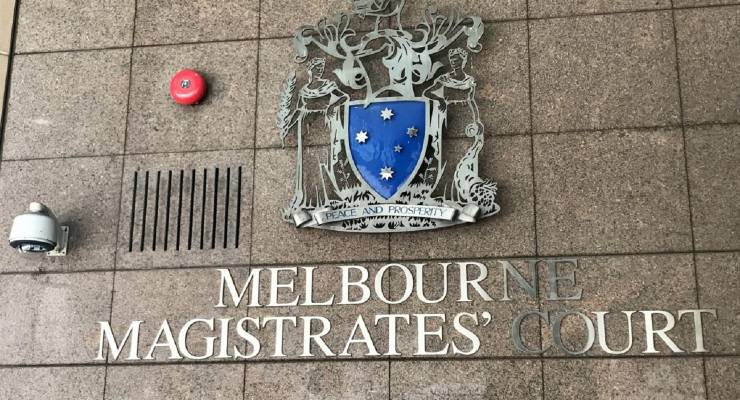
In 2016, the Victorian Royal Commission into Family Violence identified children as the “invisible victims” of family violence — forgotten about, and too often abandoned, by the services and systems put in place to keep us safe.
Eight years later, we should no longer be invisible. Everyone knows we are here, but we are still ignored and sidelined from receiving support.
The recently released systemic inquiry, undertaken by the Victorian Victims of Crime Commission, Silenced and Sidelined, also identifies children and young people as “invisible”.
The report highlights children and young people, among other cohorts, experiencing systemic and structural barriers when attempting to access the justice system.
I am one of these young people. Four years ago, aged 17, I was sent out of a Magistrate’s Court courtroom while supporting my mum to obtain a Family Violence Intervention Order for our family.
We filed into the courtroom when it was our turn to be heard. I strategically placed myself next to my mum, to block the perpetrator’s view of her.
The magistrate looked at me and asked “how old are you?”
“17,” I replied.
He then informed me that kids did not need to be present at these kinds of court proceedings and asked that I be removed from the courtroom. He had no consideration of the abuse I had experienced.
As I got up, tears ran down my face. The perpetrator looked at me and smirked. He has won again, I thought as I left the courtroom.
Every month for 14 months, my family and I were forced to attend court and front the perpetrator. Every month, I was reminded by the system that I was not worthy of respect, safety, and stability… that I had no control over my life.
Attending court was my way of standing against The Shadow. It was symbolic in a sense — the perpetrator’s behavior was not acceptable.
However, I didn’t know I would also be fighting a system that further inflicts violence, abuse and control at the same time.
The Melbourne City Mission’s Missing Figures report shows how these systemic failures, among others, increase the vulnerability of at-risk children and young people.
It found that responses to family and intimate partner violence are overlooking and downplaying the impacts on children and young people, sometimes resulting in fatal consequences and hiding the real problems faced by these groups.
Family violence overshadowed my identity. I was the boy with the intervention order, I was a victim, and I was fearful, all before I was Conor. I was trapped in a relentless cycle of violence and expected to break free without any support. I was drowning and alone. Seen, but not believed.
Tangible action on the ground for children and young people remains elusive despite several reports commissioned by the government highlighting the systemic gaps and challenges faced by young people.
The 2021 Amplify report by Melbourne City Mission and Monash University’s I Believe You report, both commissioned by the Victorian government, are cases in point. Largely, recommendations from these findings are yet to be actioned.
This track record has me questioning whether the government will continue with the status quo when the Silenced and Sidelined report arrives on its desk.
Systems remain overcomplicated, inaccessible and adult-centric eight years on from the royal commission. They largely still relying heavily on parental consent, and on children and young people being articulate, well presented, palatable and educated.
Our rights and agency are diminished, our unique experiences ignored. Yet, in times of crisis, society turns to young people as beacons of hope for a future free from violence. But without transformative change and targeted support, we cannot embody such hope.
As Victoria embarks on the next phase of family violence reforms, recognising children and young people as “agents of generational change” without adequately investing in our recovery and healing is burdensome at best.
The Victorian government’s forthcoming family violence action plan, coupled with the 55 recommendations from the Silenced and Sidelined report, presents an opportunity to genuinely include young people in crafting solutions — to ensure resources are developed with our input, and actioned with our needs and perspectives.
It’s well overdue that our voices lead the change; shaping policies and solutions that recognise our pain, respect our unique experiences, and respond to our needs.
I urge political leaders to do things with us, not for us. Only then will we have victim-centered systems that support us to heal and recover from the trauma we endure and put those to blame in frame.
Survivors of abuse can find support by calling Bravehearts at 1800 272 831 or the Blue Knot Foundation at 1300 657 380. The Kids Helpline is 1800 55 1800. In an emergency, call 000.








Good article. The courts do not adjust to change with any enthusiasm, as I well remember from the hostility that met the use of victim’s impact statements thirty years back. It will be interesting to see how the Silenced and Sidelined report is treated.
thank you